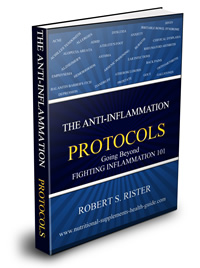Menopause and Insomnia - Menopausal Insomnia Isn't Just About Hot Flashes
TweetNearly all women approaching the age of 50 deal with some issue of perimenopause or menopause and insomnia. And the most common of these is hot flashes.
Hot Flashes, Menopause, and Insomnia
Hot flashes (sometimes called hot flushes) are really not so much a feature of menopause as they are of perimenopause, the three to seven years before complete when menopause when menstrual periods are becoming increasingly irregular.Different women have different lengths of perimenopause. For one woman, this pre-menopause period could last two years. For another, it could last five. Hot flashes also occur in women who have had their ovaries removed.
Night or day, most women sense a hot flash coming on before it actually occurs. There is usually a feeling of veins popping in the face and neck. They actually do open up to send more blood to the face and head.
Then there is a wave of heat that can last for two or three minutes up to an hour. It may be accompanied by nausea, dizziness even if lying down, headache, and severe changes in mood.
Women often take herbs or hormones to control hot flashes, but sometimes menopause is not the real cause. Especially if the hot flash occurs after eating a meal high in carbohydrate, it can be a signal of prediabetes or type 2 diabetes. Carbohydrate restriction, rather than hormonal balancing, may take care of these kinds of hot flashes that are common in the evening about 2 or 3 hours after dinner.
Also helpful are:
- Avoiding sudden changes of temperature, such as leaving a warm bath to go into a cold bedroom. Cooler nighttime temperatures in general, however, reduce the severity of hot flashes.
- The herb dong quai often reduces the frequency and severity of hot flashes, although it is more helpful for women who have gone through menopause that it is for women who are in perimenopause.
- Magnet therapy actually works, although studies at Vanderbilt University in the USA suggest that it's the weight of the magnets that makes a difference, not the strength of the magnetic field.
- Hot flashes that occur at the same time every night are almost always caused by hormone imbalance. Hot flashes or nightsweats that occur at different times of the night or day are usually due to diabetes or infection.
Vaginal Dryness and Insomnia
Another cause of sleep loss in women after menopause is vaginal dryness and itching. Dealing with dryness and itching can make sleep much easier.The underlying cause of vaginal dryness in perimenopause and menopause is a lack of estrogen. This hormone stimulates the growth of the vaginal membrane, and without enough estrogen, it just does not grow fast enough to complete cover the vagina before cells begin to die, dry out, and flake.
Diet makes a difference with vaginal dryness. Women who eat a lot of red meat, hard cheese, and smoked fish, or who drink large quantities of diet sodas, can experience fluctuations in the pH of the vagina that kill protective Lactobacillus bacteria. This causes itch-inducing bacteria to grow. The simplest way to deal with the loss of Lactbacillus is to reduce the amount of meat and cheese in the diet, and to replace the bacteria with yogurt or vaginal suppositories of Lactobacillus (available in health stores).
Also helpful are:
- Avoiding douches, especially those that contain fragrances or perfumes.
- Wearing panties made of cotton rather than synthetics.
- "Natural progesterone" products, taken orally. Their effect may not actually be due to progesterone, but the reduce the inflammation that causes the itch.
Another Consideration for Insomnia and Menopause
Another issue that complicates getting enough rest during menopause is digestive upset, specifically nighttime flatulence. A study published in the journal Women's Health found that 48% of women going through menopause suffer excessive nighttime flatulence.What can women do about this seldom-discussed problem? Here are some suggestions:
- Don't drink liquids through a straw. The additional air taken through the straw comes out as gas.
- Don't use "sugar-free" chewing gum. Sorbitol and xylitol sweeteners serve as food for the colon bacteria that make gas.
- Unless you have heartburn or gastroesophageal reflux disease, eat bitter foods at every meal. Bitter foods trigger the release of stomach acid, digesting sulfur-bound proteins more complete.
You may also be interested in Psychophysiological Insomnia.
Return to Types of Insomnia
Return to Nutritional Supplements Home Page
The Anti-Inflammation Protocols

A LIFE FREE OF PAIN AND INFLAMMATION
Discover how simple changes in diet and lifestyle stop inflammation
Over 200 pages of potentially life-changing information
Only $9


 If you find a product that is as effective as Total Balance, and is better value for money, let us know and we will give you a refund equivalent to your entire purchases of Total Balance…retrospective.
If you find a product that is as effective as Total Balance, and is better value for money, let us know and we will give you a refund equivalent to your entire purchases of Total Balance…retrospective.